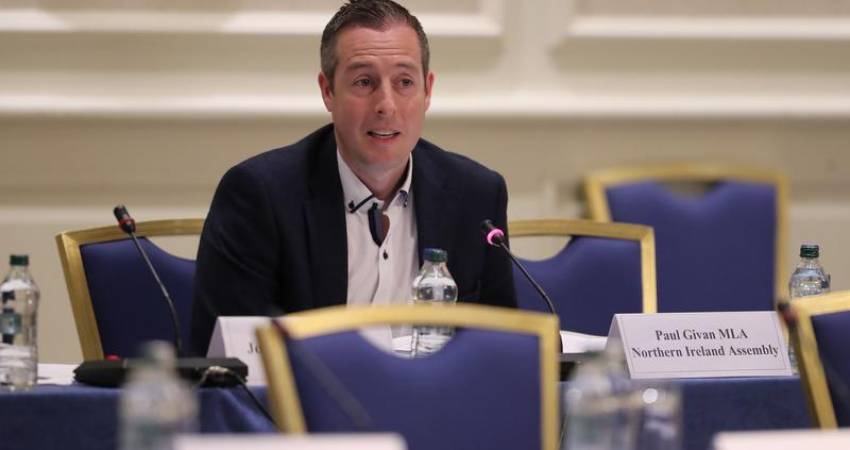
DUP seek to ban late-term abortion on disability grounds
A private members bill is seeking to change Northern Ireland's current abortion law on disability grounds. Currently, abortion is legal in the region for any reason up to 12 weeks, and up to 24 weeks when the mothers life is in danger - but is legal up until birth in the case of a disability, which can include Down's syndrome or a cleft palate.
Paul Givan, a member of the Democratic Unionist Party, is presenting the bill in order to repeal the section of the abortion law that allows for abortion in the case of a disability.
“The current law tells those with disabilities that they are worth less than other people, their contribution is less valuable, their lives less important, less full,” Mr Givan told the Belfast Telegraph.
“It invites us to view those with disabilities as less deserving of the protection of the law. The idea that Down’s syndrome is some huge problem that should be addressed by abortion is chilling. You don’t have to look far to see the full lives those with disabilities lead – they enrich our communities and families.”
Mr Givan is receiving support from the Don't Screen Us Out disability rights group and from disability activist Heidi Crowter, who is taking the UK government to court due to their current abortion law that allows for abortion for babies with a disability up until birth. Heidi also spoke at the virtual Rally for Life 2020 in Ireland where she called out the abortion law as “downright discrimination”.
Ms Crowter told the Belfast Telegraph: “This bill that allows abortion up to birth in Northern Ireland makes me feel that I am not as valued as anyone else. Maybe people are even told that living with Down’s syndrome is too hard, but research confirms that people with Down’s syndrome and their families are happy with their lives.”
Laura Denny, a Belfast mother whose son Nathan has Down's syndrome, is also supporting this bill.
“It wasn’t until my son Nathan was in my arms that I realised I had a baby and not just a diagnosis,” she said.
“Termination was suggested to me in my pregnancy and I will never forgive myself for having considered it when I was given no hope for my baby. After a very turbulent pregnancy with Nathan and not a lot of medical support, we are hoping to raise awareness and challenge preconceptions of having a child with Down’s syndrome.”
However, the bill does not protect babies diagnosed with a disability if they are not expected to survive after pregnancy.
Featured
- Campaign to stop EU funding out of state abortions - tell your EU commissioner to vote NO
- Judge recuses himself from case of woman praying in censorship zones for “apparent bias”
- I’m a Celebrity star criticises “sad” UK law that aborts babies with Down Syndrome up to birth
- British actress speaks out on “serious risk” assisted suicide bill has for those with eating disorders
- Caplan’s “Tragic Hysteria of Abortion” discusses the flaws with mainstream Turnaway Study interpretations
- Backlash as Scotland report proposes legalising sex-selective abortion up to birth
- Canada hits new record as 1 in 20 deaths a result of Euthanasia
- Ben Scallan defends pro-life on TV show Dinner with the Enemy
- Influencers share the loss of their beloved unborn baby
- Dublin woman with cancer says unborn child was sent to save her
- Mother and baby doing well after surgery for mother’s cancer during pregnancy
- Josiah: Abortion Survivor
- Loving the Unborn
- Rally for Life 2025
- Don't assist Suicide 2024
You can make a difference.
DONATE TODAY